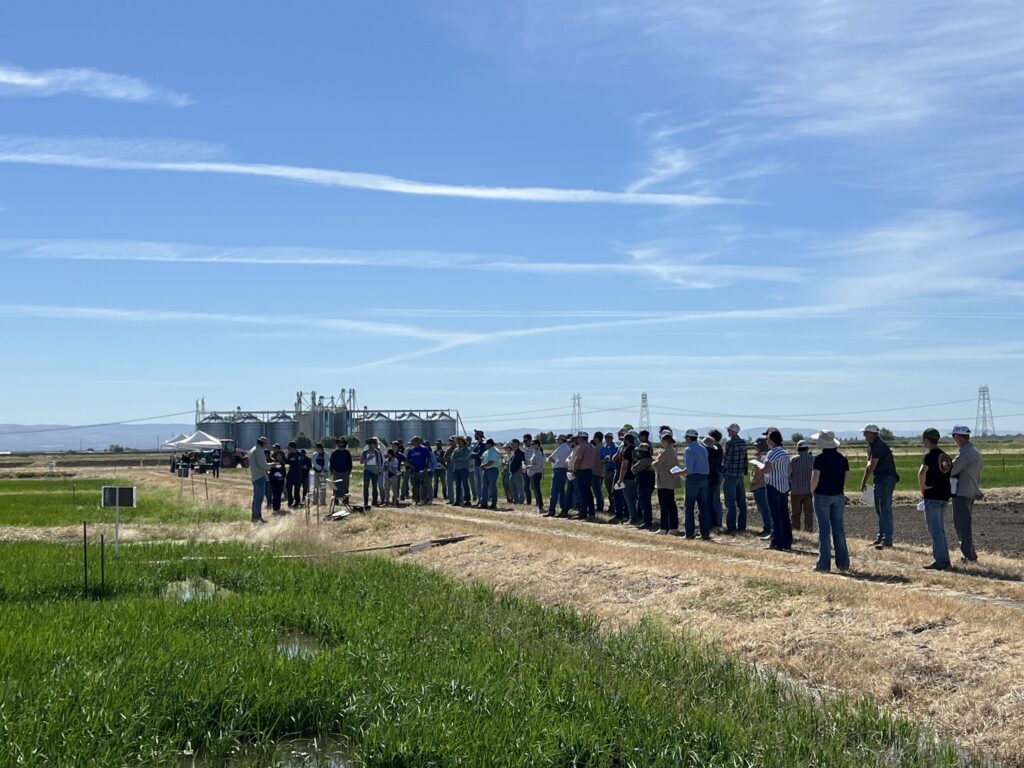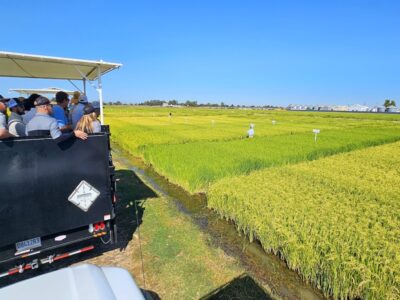A crowd of rice growers, PCAs, researchers, and more gathered at the Rice Experiment Station in Biggs to discuss various no-till planting and management strategies for drill-seeded California rice.
Dr. Bruce Linquist, UC Davis Rice Specialist, organized an agenda that encompassed various types of no-till, drill-seeded planting.
Dr. Dustin Harrell, the Director of the Rice Experiment Station, offered remarks on no-tilled rice planting based on his expertise in both rice breeding and Southern rice practices.
Members of Dr. Lindquist’s lab spoke on experiments conducted in the no-till rice trials. Mia Godbey, UC Davis Ph.D candidate, detailed the results of gibberellic acid treatments in no-till rice systems. Nawal Taaime, a postdoctoral student, laid out the water-savings potential of these alternative practices.
UCCE Rice advisors noted pest management strategies that may become more pertinent as drill-seeded acreage increases. Dr. Luis Espino discussed the insect and disease pests that no-till, drill-seeded rice may harbor. Dr. Whitney Brim-Deforest explained the weed management strategies currently available to drill-seeded rice growers.
Kelby Sheppard, a rice grower who has experience with drill-seeded rice, talked about his planting experience this year and offered practical notes on challenges he faced when using the drill-seeded system.
The handouts that were available at the field day can be found at https://agronomy-rice.ucdavis.edu.




